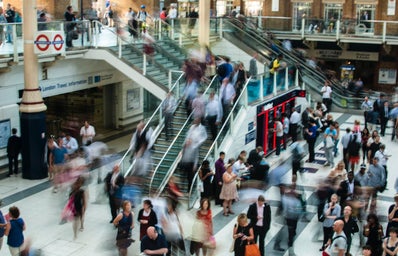In March 2024, a survey conducted by Sabian Labs ranked the UK as the world’s second most miserable country, surpassing nations experiencing humanitarian crises like Yemen. While many media outlets expressed surprise at these results, personally I am not shocked. However, in this article, I don’t wish to discuss the national misery which is upon us, but rather aim to draw distinctions between our capital city and my experiences in other cities around the UK.
When I moved from London to Nottingham for university last year, I noticed several key differences. One of the most striking was how much more open and talkative people are in other cities, especially in comparison to London. London has a distinctive individualistic culture, and there’s an unspoken rule to mind your own business and avoid getting too involved in the affairs of others. This is not to say that all Londoners are unkind, but I would rather describe it as being socially detached and a very obvious lack of community. When walking in central London in particular, I’ve become accustomed to people walking with their heads down, avoiding eye contact, and most definitely no smiles—it’s the general consensus to avoid as much human interaction as possible. To be completely transparent, upon moving here, I was sort of unnerved by the openness of others and the general comfortability people have in smiling and speaking to people they don’t know. I conducted a survey within a group of university students like myself who moved from London to other cities, and 80% of them agree that the people in cities like Nottingham were noticeably friendlier and more willing to engage with strangers.
A more noticeable difference can be seen in countryside areas, where people are more engaged with their neighbours’ wellbeing and affairs. The slower pace of life gives way for an air of community to form, and therefore, a sense of collective responsibility. People seem to look out for one another in ways that are much less common in big cities. In rural areas, you often see neighbours offering a helping hand or stopping to chat with one another, creating a strong support network that’s visible in everyday life.
I theorise that the individualistic and hostile attitudes within London impact negatively on the homeless as well as those with mental health issues. In central London, more specifically, it is not uncommon to see people who are desperately in need, whether it is homelessness or general mental health struggles, with London having the highest rates of homelessness, drug abuse issues, and mental health problems. I can’t help but find it somewhat dystopian that people are privy to not even acknowledging those in need. In big, hectic cities like London, it is easy for people to disregard those who are physically marginalised by the rest of society, even more so than they would in other areas around the UK. The sheer scale and rush of city life make it all too easy to ignore the suffering of others, as individuals focus on their own survival within a crowded, fast-moving environment.
While we may pride ourselves on living in a landscape that is constantly moving and advancing, is it possible that this fast pace allows for the suffering of the less fortunate to fall through the cracks? In such a rapidly evolving society, is there room for the slower, more intentional pace that rural areas provide, where community and empathy thrive? Would the UK benefit from more community-based environments as opposed to big, cold cities?


